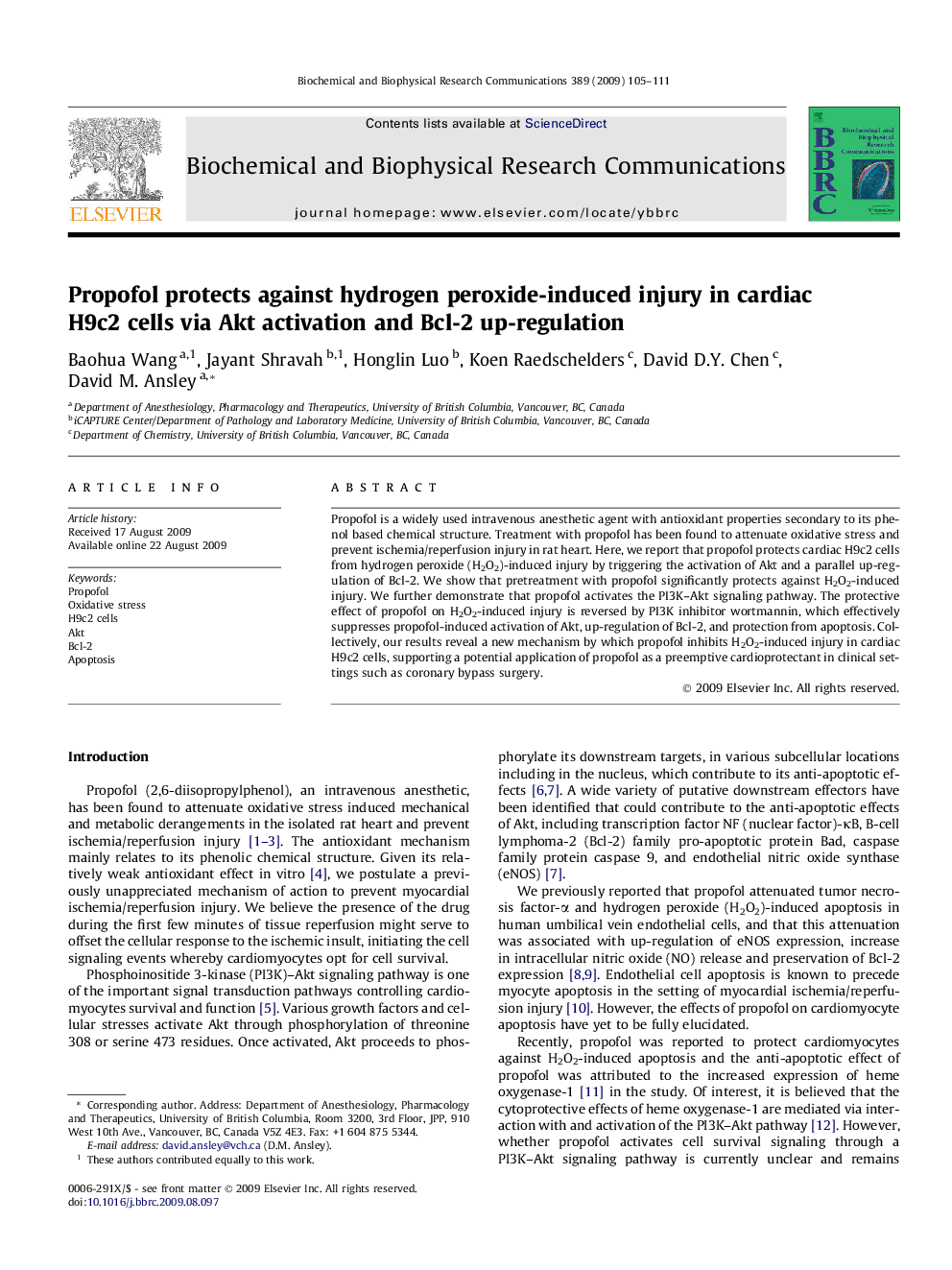| Article ID | Journal | Published Year | Pages | File Type |
|---|---|---|---|---|
| 10765561 | Biochemical and Biophysical Research Communications | 2009 | 7 Pages |
Abstract
Propofol is a widely used intravenous anesthetic agent with antioxidant properties secondary to its phenol based chemical structure. Treatment with propofol has been found to attenuate oxidative stress and prevent ischemia/reperfusion injury in rat heart. Here, we report that propofol protects cardiac H9c2 cells from hydrogen peroxide (H2O2)-induced injury by triggering the activation of Akt and a parallel up-regulation of Bcl-2. We show that pretreatment with propofol significantly protects against H2O2-induced injury. We further demonstrate that propofol activates the PI3K-Akt signaling pathway. The protective effect of propofol on H2O2-induced injury is reversed by PI3K inhibitor wortmannin, which effectively suppresses propofol-induced activation of Akt, up-regulation of Bcl-2, and protection from apoptosis. Collectively, our results reveal a new mechanism by which propofol inhibits H2O2-induced injury in cardiac H9c2 cells, supporting a potential application of propofol as a preemptive cardioprotectant in clinical settings such as coronary bypass surgery.
Related Topics
Life Sciences
Biochemistry, Genetics and Molecular Biology
Biochemistry
Authors
Baohua Wang, Jayant Shravah, Honglin Luo, Koen Raedschelders, David D.Y. Chen, David M. Ansley,
